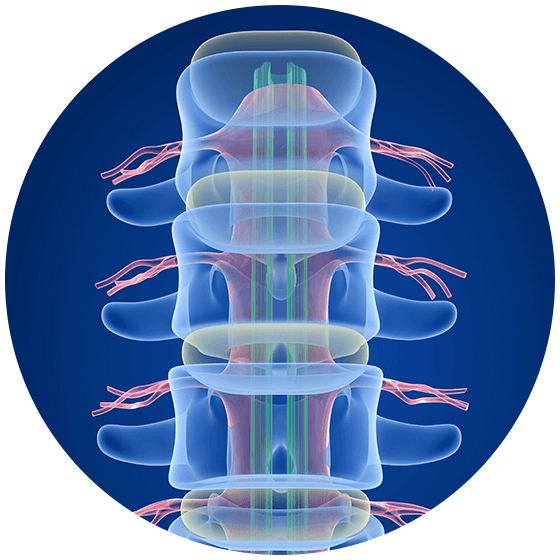Endoscopic Discectomy

What is an Endoscopic Discectomy (ED)?
An Endoscopic Discectomy (ED) is a minimally invasive surgical procedure that is used to remove herniated disc material. These discs may cause pain in the mid-back (thoracic spine), neck (cervical spine), or lower back (lumbar spine) regions. EDs are one of the most common and least invasive surgical techniques available for treating spinal disc herniation.
With this procedure, surgeons do not need to remove muscles and bones in order to perform the surgery. Instead, the surgeon observes the spine using a tubular retractor. This specialized tube is inserted through small incisions to ensure that minimal damage is caused. Muscles are gently moved to the side and held in place. Your doctor will not need to tear or cut them. Additionally, the doctor administers local anesthesia to the patient to ensure the highest level of comfort possible. With the camera in place, the housing tube then serves as a passageway for other surgical instruments used during the ED. The performing surgeon then uses x-ray fluoroscopy for guidance and live visualization. With all of the pieces in place, the doctor either partially or fully removes the affected discs using a grasper. The surgeon then removes the tube and closes the small incisions.
This process usually takes about 30 minutes and does not traumatize the spine like traditional open surgeries do. Though it varies on a case-by-case basis, most patients find that they can go home 2-3 hours after the procedure.
The potential complications for minimally invasive spinal procedures include:
Infection: An orthopedist will give antibiotics to the patient before, during, and after surgery to lessen this risk.
Returning Symptoms: Some patients experience recurrence of their original symptoms. The chance of this happening is less than 20%.
Bleeding: Bleeding is much less of a risk with minimally invasive procedures, but it is still a risk. Generally, bleeding for these types of procedures is not significant.
Nerve Damage: In very rare cases, nerves or blood vessels may suffer injury during the operation.
Advantages of an Endoscopic Discectomy (ED)
A form of minimally invasive spine surgery, EDs boast the following advantages:
Minimal blood loss
Outpatient procedure (no hospitalization required)
Minimal scar tissue formation due to smaller incisions
Short recovery time
High success rate
Preservation of spinal mobility
Local anesthesia
No external stitches
Possible Complications
It is important to note that there are general risks involved with any surgical procedure. That said, minimally invasive procedures carry fewer risks than traditional open surgeries. In rare cases, nerve root damage or persisting pain may occur after surgery. To minimize this risk, communicate any discomfort you may have with your doctor after the procedure.
Eligibility Requirements for an Endoscopic Discectomy (ED)
Eligibility for an ED heavily depends on your personal case. You should talk to your doctor about any relative risks or benefits. In some situations, more minimally invasive options such as EDs are not as safe as traditional open surgery. Additionally, some cases cannot be truly treated with minimally invasive surgery. Most doctors typically try more conservative treatments before opting for surgery. If these treatments prove to be ineffective, then surgery may be the next step.
To determine if surgery is right for you, your doctor will need a brief medical history and insurance information. They will need to know about any pre-existing medical conditions you may have. For example, a doctor will need to know if you have any allergies to anesthesia, or if you have a diagnosis such as diabetes. Let your doctor know if you have any bleeding disorders, such as hemophilia. Communicating information like this with your doctor can help you ensure a successful surgical treatment.
Are you considering an endoscopic discectomy to treat your spinal condition? If so, please contact one of our patient advocates at 973-791-4101. You can also make an appointment online. Our facility employs board-certified, fellowship-trained physicians who specialize in minimally invasive spine surgery. We use cutting-edge conservative options and state-of-the-art surgical management to ensure that you receive the best treatment plan for you.


